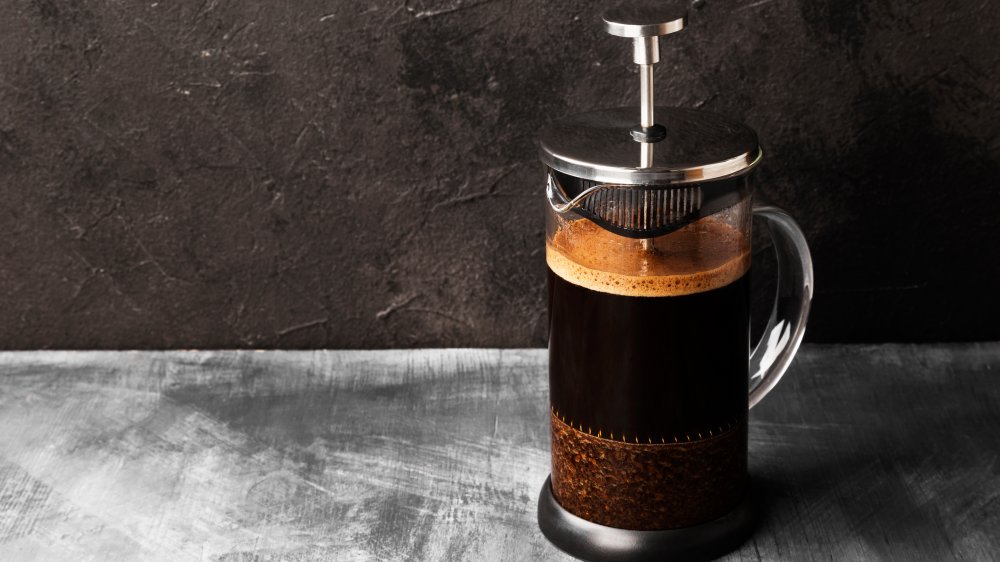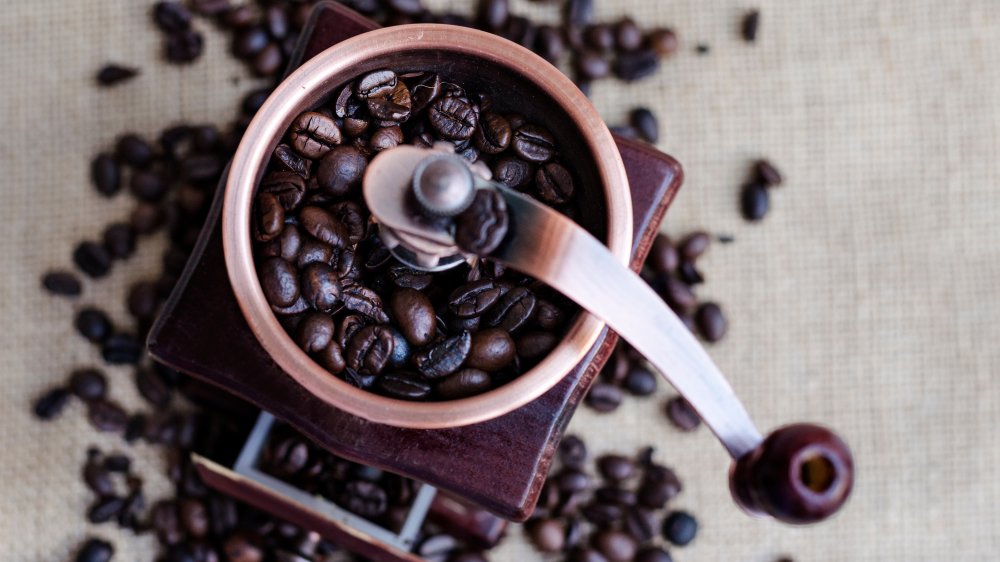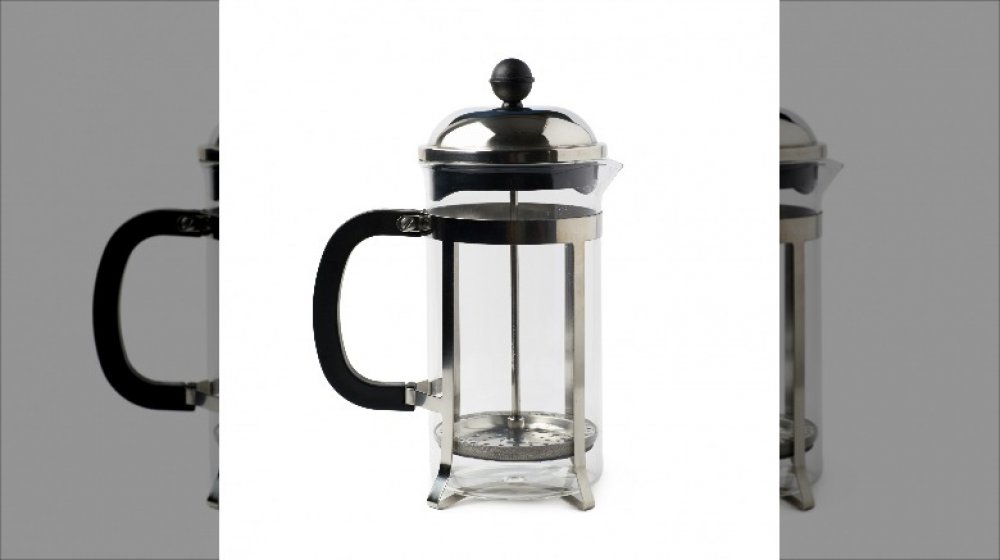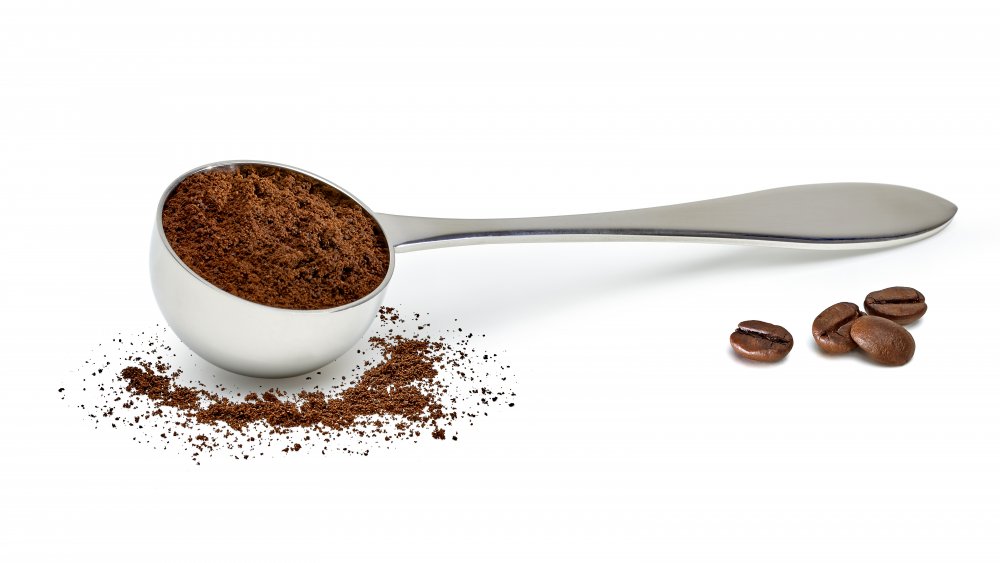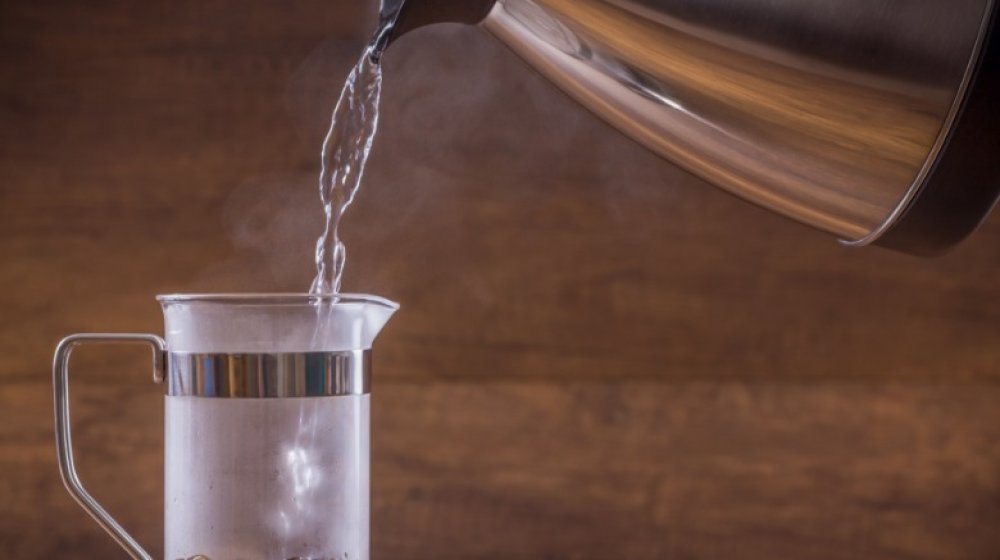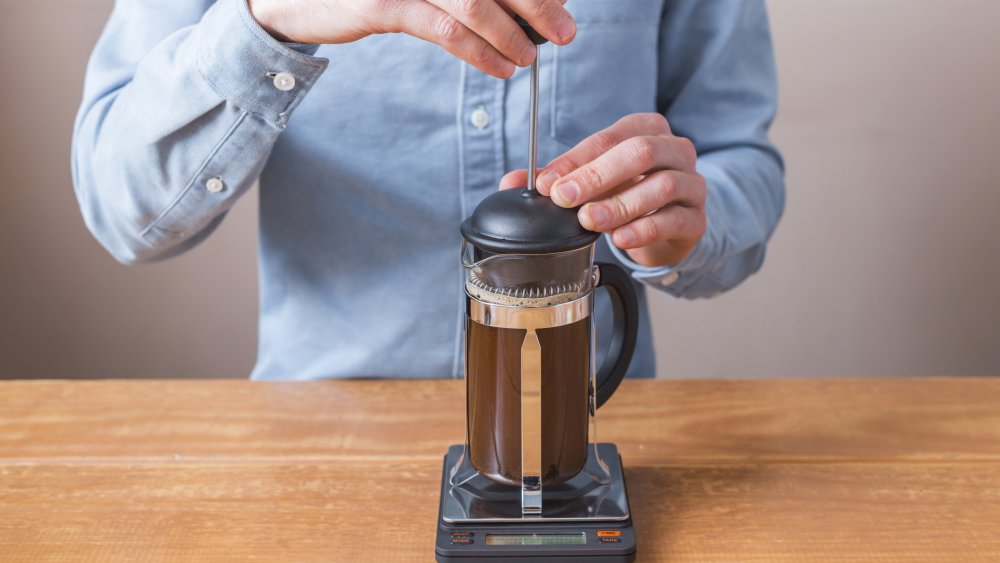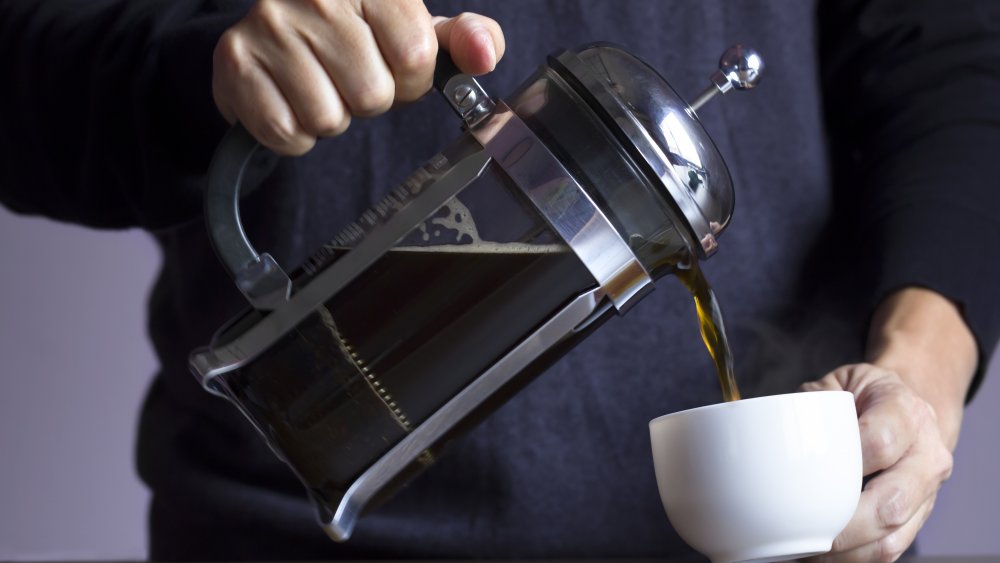Coffee Expert Breaks Down How To Brew The Perfect French Press Coffee
While the French press method of coffee making has been around since the mid-19thcentury, according to European Coffee Trip, it's lately had quite the resurgence in popularity since it's kind of an entry-level method of home-brewing your own specialty coffees and it definitely feels a lot fancier than firing up the same old Mr. Coffee model as the one that sits in your office break room.
The problem with French presses, according to coffee expert Alex Azoury, is that hardly anyone knows how to use them. Azoury, the founder and CEO of Home Grounds, estimates that 90 percent of people who try to make French press coffee are doing so incorrectly: "Most people throw in the coffee grounds, tip in some water, press the plunger, and then pour straightaway. Great coffee in one minute? Not quite." Luckily, this situation is easily remedied, since as Azoury explains, "It's quite simple to brew a flavorful and satisfying cup of coffee if you follow a few basic rules."
Choose the right type of coffee and grind it yourself
Azoury advises that only a medium or dark roast bean will produce the best French press coffee. He also cautions against using pre-packaged, ground coffee, saying it loses flavor quickly and warning: "If you're going to throw standard fine ground coffee into your press, then don't expect the greatest result."
For the freshest, and best, coffee, Azoury advises you to purchase whole beans and grind them yourself. He ways you'll need to "invest... in a decent grinder and... choos[e] one that actually grinds the beans instead of one with blades." You should also grind the beans medium to coarse, rather than the fine grind you might use for drip coffee.
Choose the right press
Not only do you need the right ingredients to brew high-quality French press coffee, that being freshly-ground beans of the proper roast and consistency, but you'll also need the right equipment. While a high-quality press may be more of an investment than a budget model, Azoury says it will be worth it. His advice is to "purchase the best French press you can find and not some cheap and nasty pot that you'll have to replace in 6 months." He says that there are excellent pots available in glass, ceramic, and metal, but when we asked which type he recommended, he replied: "I prefer something less fragile than a glass pot and ceramic is my first choice."
Use the right amount of coffee
When you're filling your press, be aware that the amount of coffee you use may be different than that called for with a different type of coffee maker. According to Azoury, French press coffee requires a higher ratio of coffee to water than other methods. He says he recommends using 27 grams of coffee for each 350 ml of water, or, for non-metric users, just under one ounce of ground beans to a little less than a cup and a half of water. Still confused? Azoury clarifies the ratio even further, saying: "Another way to calculate this is to work on one part coffee to 15 parts water," and advising that you "try experimenting with this until you find the ratio that suits your taste."
Warm the pot before you brew
You don't just dump the ground coffee into the pot, then pour on the boiling water. If you want the best results, you'll need to do as you would when brewing tea in a teapot, and warm the pot up first. (This coffee hack can even work with the mug from which you'll be drinking.) Azoury's method involves swirling hot water around inside the press right before you add your grounds. He explains that this practice " avoids any temperature fluctuations in your brew which occur when you're adding hot water to cold equipment." Once you've poured hot water over the coffee grounds, he also advises to follow up by stirring in order to ensure that all grounds are immersed.
Be patient
As with all good things in life, French press coffee isn't ready in an instant. Rather than the few seconds in which water meets coffee grounds via the drip filter method, French press coffee gets its richness and depth of flavor for having the grounds steep for several minutes. As Azoury says, "About four minutes is the optimum time to steep your brew, but you can adjust this to your preferences." He also offers one more piece of advice for when those four minutes are up: "If there is too much resistance when you plunge, then your grounds are too fine. Not enough resistance and your grounds are too coarse."
Why French press coffee is worth the effort
While this may seem like a lot of trouble and expense to go through, what with needing to purchase not only a high-quality press but also a good grinder as well as seeking out and learning to grind your own whole beans, Azoury promises that the results are well worth the trouble. He says he loves the amount of control using a French press gives him over the brewing process, as well as the ability to create different flavor blends by combining different roasts. Overall, he feels that the French press method stacks up with the best coffee brewing techniques, and says: "When made correctly, French press coffee will satisfy the harshest coffee-loving critic."
